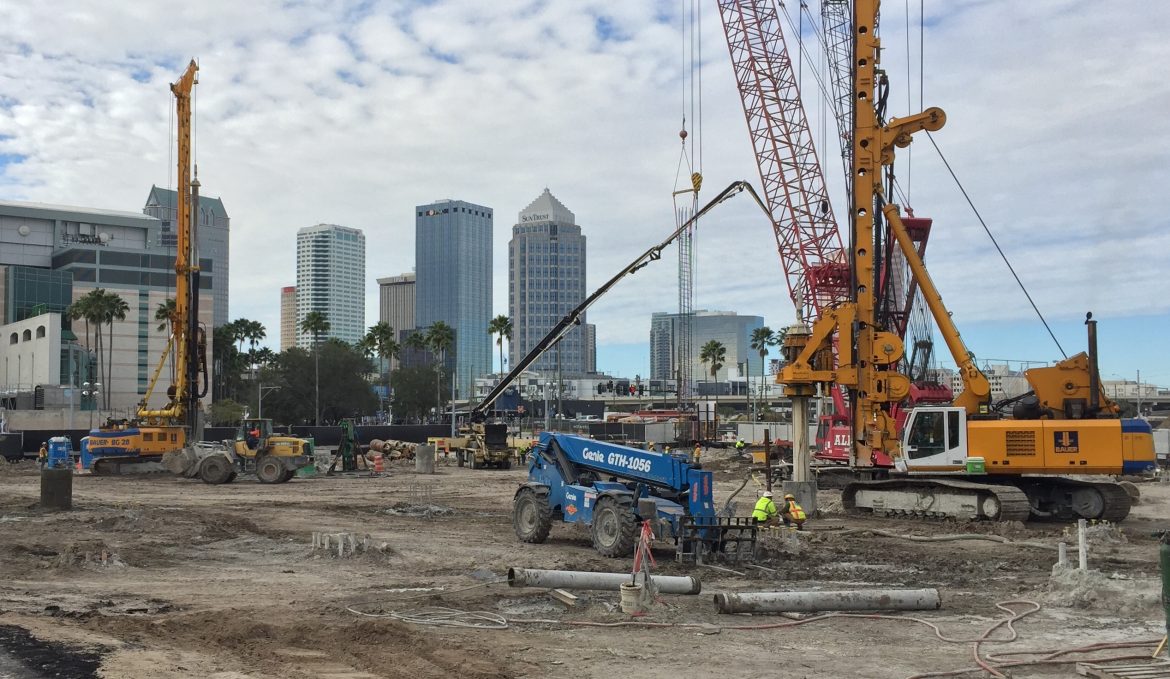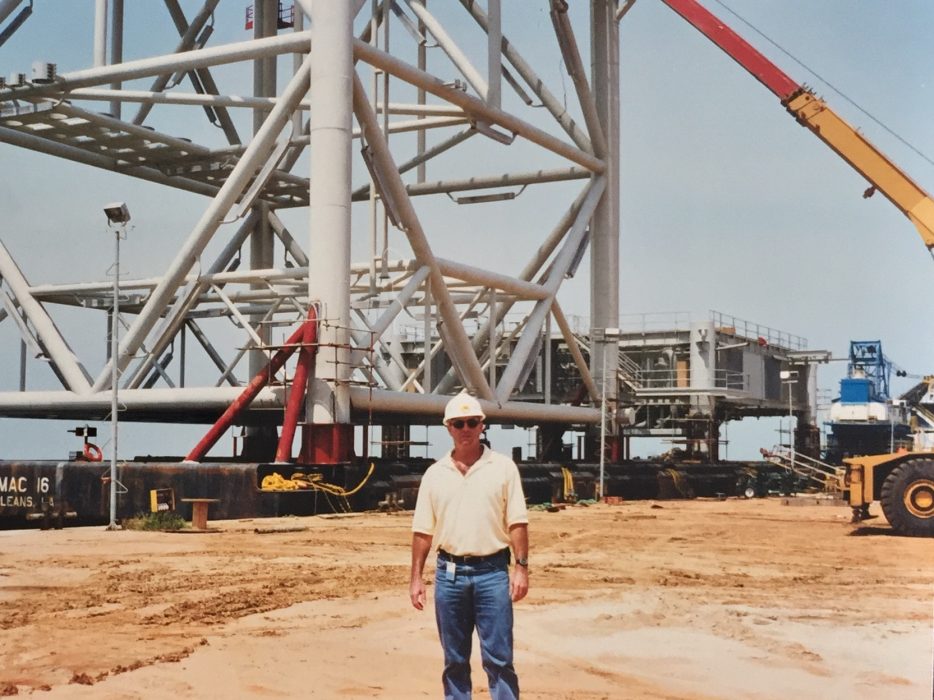Construction Equipment Outlook 2019 – North America & Export
Industry news has been conflicted regarding the economic outlook for 2019. As a company who is in the “trenches” daily working with industry leaders and equipment users worldwide, we believe there is a significant need to reestablish export channels into reliable secondary markets outside North America. Over the last several months OEM Dealers, Trade Association Members and other owners have increasingly expressed concern over their limited options for expected and orderly liquidation of equipment inventories.
Starting the 2019 New Year with the effects of increased Federal Reserve rates, the nuisance of a “Trade War cloud” and record partial shutdown of the US Government: this year is unique to say the least. The United States GDP annual growth through Q3/2018 was 3.5% and reflected a red-hot construction market widely believed to be unsustainable going back to last summer. Currently, most financial analysts anticipate a pullback this year, nuanced by volatility of consumer confidence and continued uniformity of the pessimism regarding the United States and broader world economy. We agree, believe the US Economy has strong fundamentals and anticipate a soft-landing into a 2.0-2.5% GDP growth range.
The Construction Equipment industry is a leading economic indicator and much has changed since the “malaise of 2007-2011” brought on by a collapse of the US housing market – but much has also remained the same, mainly options. Secondary markets for used construction and earthmoving equipment continue to be limited to the domestic playing field, mainly due to the expensive & cumbersome bureaucracy of modifying Tier IV machines (engines) for export and use internationally with locally available fuels. The “world region model” that characterizes current OEM behavior does not lend to changes, and manufacturers won’t purposely enable their North American Dealers to engage in this activity. Void of the historical “safety valve” for exportation of used machinery into Latin America/Caribbean, Africa, the Middle East and elsewhere – owners have a looming problem.
Some aggressive OEM & Independent Dealers are actively fortifying their capability for international trade via acquisition of non-EPA Compliant machines (Tier II, III) from other regions, shipping them to Free Trade Zones (FTZ) within the USA with intent to resell internationally. These players are setting themselves up for future throughput by ensuring their export sales activities are adequately staffed, supported and ready for an increase in business. In lieu of “de-tiering”, they are currently playing the only game available to them as OEM Dealers
Ritchie Bros Auctioneers (RBA), an industry bell-weather, covered 2018 sales targets domestically due to a strong US economy. We expect their marquee event next month in Orlando will marginally eclipse the record-setting US$278MM of a year ago, which was their first February event post-acquisition of “IronPlanet”. As a market-maker, RBA has yet to introduce a solution for Tier IV (interim, final) machinery being refitted for export, and thus, shares the experience and consequences of limited international trade in their core asset group.
Meanwhile, our industry continues to suffer as existing trade platforms remain outdated, fragmented and generally inefficient compared to other industries. Fee-based tools and websites which emulate and facilitate age-old behaviors have taken some shallow roots, but it’s not enough. End-users need complete platforms which simplify direct involvement and control in the trade of their equipment (usually their largest single capital expense) at a reduced cost. Expect “new players” to emerge, challenge and compete in the sale of quality used equipment currently being relegated to local brokers, auction houses, and via trade-ins on the sale of new machinery – options which relinquish significant value as owners do not perceive better solutions.
The next phase of our economic cycle will be the first real observance of a market dominated by Tier IV machines entering secondary markets in North America. We anticipate equipment owners will seek solutions in a new landscape which include an international component. The low-hanging fruit are machines produced prior to 2012, or, “pre-Tier IV” machines, which generally require no engine modifications for use overseas. Tier III machines (2007-2011) are perpetually in high demand in a very diverse international market, as are the Tier II predecessors. With our first-hand experience in the “de-tier for export” process at the OEM level (CAT, Volvo), we are increasingly being approached for discussion by organizations throughout the industry. Necessity is the “Mother of Invention” on the “de-tier for export” front, and solutions outside the OEM channel do exist.
To learn more about our export and other services click here
Venezuela’s “Tsunami Politico”
A seismic-shift is underway in Venezuela, with myriad implications worldwide. This is “Cuba on steroids”, with the titanic exception of a population “who once had everything” in a globally connected society, then “lost everything” under exceptionally poor governance, all while continuing to preside over unparalleled concentrations of natural resource wealth.
For those who understand the culture, society and follow events in Venezuela, the current situation and accelerated demise of President Maduro’s “Chavista” regime has a ring of finality – an overdue outcome to witness, study and document. Venezuela’s “next government” and entire Western Hemisphere, must have a cohesive plan moving forward. It appears the early chapters of transition were already written, now playing out coinciding with significant historical, recent & upcoming events:
· January 5th – Juan Guaidó chosen to lead the Venezuela National Assembly, an elected body widely recognized as the only remaining entity with a mandate from the people
· January 10th – President Maduro’s inauguration for a second, six-year term based on a rigged-election in May 2018, and boycotted by the opposition
· January 23rd – mass demonstrations across the Country and embassies around the world to coincide with this date in 1958 when a civilian-military movement overthrew the government of the Country’s last dictator, General Marcos Pérez Jiménez
· January 23rd – Caracas, Juan Guaidó, speaking to tens of thousands of supporters at the main opposition rally, declares himself “acting” President of Venezuela (referencing a clause in the current Constitution to legitimize the action) – his claim quickly recognized by the Organization of American States (OAS) and several governments, including Argentina, Brazil, Canada, Colombia, Ecuador, Peru and United States
· January 23rd – President Maduro (now disputed) announces cutting diplomatic ties with the United States: all embassy personnel ordered to leave within 72 hours; subsequently, “acting” President Juan Guaidó requests the United States diplomatic mission remain in the Country
· January 26th – deadline looms per “disputed” President Maduro’s call for all United States diplomatic personnel to depart Venezuela
· February 2nd – in eight days-time, the 20th anniversary of the first Inauguration of President Hugo Chavez – for “Chavistas” and opposition followers, a significant date
It is clear Venezuela’s “opposition in-exile” had a plan developed to remove the current government from power, finally set in-play by a convergence of events favorable for launch. Today, confrontations loom as “acting President” Juan Guaidó has stated “demonstrations and rallies will continue until liberty is achieved”. The current situation is complex but not surprising – if scripted, a compelling end to the “Chavista Era” would culminate with Nicolas Maduro standing down at the recommendation of the Armed Forces, “acting President” Juan Guaidó addressing the nation on February 2nd, calling for national peace and reconciliation, detailing the structure and actions of his transitional government, addressing the current humanitarian crisis, plan to stabilize the economy, and announcing a firm date for fresh elections later this year. The appearance of a democratic path for a peaceful transition per the Venezuelan Constitution has allowed increased international pressure which, in my view, will become overwhelming for the Maduro Regime.
President Maduro must have received the message that violent suppression of opposition dissidents at his direction, or otherwise on his watch, would bring dire consequences to himself and his “Chavista” cronies. In fact, the International Criminal Court (ICC), has a pending request by six neighboring Countries to initiate an investigation on crimes against humanity allegedly committed in the territory of Venezuela since February 12, 2014. The rank and file of Venezuela’s Armed Forces have no stomach for committing atrocities domestically, nor defending “La Patria” from regional military forces (supported by the United States) whose abilities dwarf their own experience, competency and power. Colombia comes to mind, Venezuela’s neighbor to the West and “cultural sister”, as a Peace-Keeper of good will.
Nicolas Maduro – uncharismatic, weak, inept – was always a strawman for the corrupt political beneficiaries enabled and entrenched by Hugo Chavez. The legacy and cohesion sustained under Chavez died with him in March 2013, and the fuse lit for the regime’s eventual demise.
Regardless of imminent events, change will come, and soon Venezuelans will be faced with a “complete rebuild” of their economy and social structures as they navigate the “undoing” of twenty years of administrative mismanagement, squandering of natural resources, embezzlement, fascism, thuggery and corruption. Having lived in Venezuela “before-during-after” Hugo Chavez’s ascension to power, my experience suggests there will be a powerful and admirable effort on the part of those who remained behind (a majority with no other choice) and those who fled & return quickly, to work for peace and reconciliation. National unity is another matter, a longer-term goal that is required before many others who departed – Venezuelan Nationals, business partners, etc – will feel secure enough to return.



Recent Comments